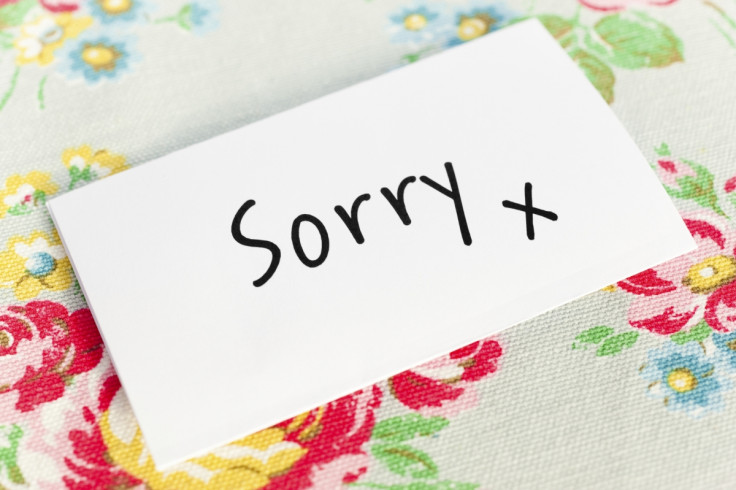Liberals apologise more often than conservatives - and they're also more forgiving
Political ideology has been linked to people's willingness to apologise.

Conservatives are less willing than liberals to apologise, scientists have found out. They are also less likely to forgive after receiving an apology.
The research was conducted after a University of Queensland researcher, Matthew Hornsey, became intrigued by the fact that some people seem to apologise more often than other.
This observation seemed particularly relevant to the case of public apologies – he had noted that liberal politicians appeared to apologise more often than conservative politicians.
To test this hypothesis, he and his team conducted two experiments, published in Social Psychological and Personality Science.
The first one involved surveying 2,130 people from nine countries about their political orientations. They also had to answer questions about how willing these participates were to apologise, in different situations.
The analysis of the results revealed that those who considered themselves conservative reported apologising less than those who considered themselves liberals. The scientists also discovered that participants with a more conservative ideology were less likely to be influenced by other people's apologies – they are thus potentially less likely to accept apologies and forgive others.
Watering the lawn
In the second experiment, 65 volunteers from India and the US were selected. They were asked to participate in a task where they had to write an open-ended response to a victim of a fictional transgression they had committed. The story they were told was that they had been asked to water their neighbour's lawn while he was on holidays and that they had done a poor job of it.
The participants then had to write what would happen when the neighbour got back. The scientists discovered that people who identified as conservatives were less likely to include apologetic elements in their response.
Although it is not clear what causes these differences between liberals and conservatives, the scientists highlight potential mechanisms. They hypothesised that conservative are more likely to think about relationships in terms of hierarchy.
Apologising might translate to feelings of losing power over others. In contrast, liberals, who may have a relatively high commitment to equality are more likely to provide and reward apologies.
© Copyright IBTimes 2025. All rights reserved.






















